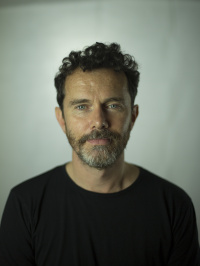Will an arts degree stop you from getting a good job?
Earlier this week, bosses of some of the UK’s biggest firms – including Siemens UK, the National Grid, Shell and BP – suggested that students who want a good job should think carefully before choosing arts degrees. We ask designers, academics and industry campaigners what they think about this.

“The latest figures from the Department for Culture, Media and Sport show the UK’s creative industries are growing at three times the rate of the wider UK economy and that they accounted for 1.71 million jobs, or 5.6 per cent of total UK jobs in 2013. Our creative industries are thriving and that is because of arts graduates. However, the suggestion that arts graduates cannot benefit the UK’s more traditional sectors is a fallacy – to focus only on training more engineers and scientists in isolation is to miss the chance of going beyond simply filling job vacancies and instead creating the sort of quantum-leap innovations which advance a whole industry. Learning from creatively trained innovators such as Ive, Dyson and Heatherwick, leading economies across the globe recognise that the greatest potential for progress and success now lies in harnessing the arts’ experimental thinking combined with industry’s manufacturing prowess.”
Nigel Carrington, vice chancellor, University of the Arts London

“Both of my children are taking arts degrees – Design Interactions at RCA and Film at University of Bournemouth – which should serve them very well for their talents and chosen professions. I cannot imagine that I could have had a better start than Industrial Design Engineering at the Central School of Arts in the mid 70s. However, I do think it helped that I did maths, physics and chemistry A-levels – the lessons from which I use daily. A balanced and rigorous education that includes some science is what I look for in a CV for potential product designers; so my best advice for students is to view higher education as both spiritually enriching and vocational. Lawyers and accountants do tend to get paid better, but creatives such as scientists and designers are pretty much at the same level I suspect.”
Sebastian Conran, founder, Sebastian Conran Associates

“A rigorous arts or humanities course at a prestigious university leads to excellent employment prospects across a swathe of industries. Yes, starting salaries may be lower than those of STEM graduates but it is wrong to assume that arts graduates cannot rise to high levels of achievement in the creative industries, public service, or other industries. Many employers actually prefer a first degree in a non-vocational subject, followed by a second degree or professional qualification. The dearth of engineering graduates entering the industry is not due to a lack of graduating engineers: it’s due to those graduate engineers deciding to pursue careers in sectors other than engineering – often in the City!”
Dr Paul Thompson, rector, Royal College of Art

“Using high-level terms such as ‘arts’ and ‘science’ render them meaningless: you can have a great career with either. What is even more idiotic is pitching them against one another when what we actually need are people with the confidence to blend both. My current favourite cocktail is design and behavioural science – or what we call behavioural design. It blends imagination, with which to create new possibility, and scientific experimentation, with which to discover whether you are having the effect that you desire. It’s helping us to crack important challenges in healthcare.”
Mat Hunter, chief design officer, Design Council

“The same bosses who have implied this say that we need roughly double the number of school leavers going into science, technology, engineering and mathematics – suggesting that arts degrees are a ‘nice-to-have’, but STEM degrees are crucial to business and the economy. I think you’ll find the creative industries grew at three times the rate of the wider economy last year – so that nice-to-have degree appears to be delivering for the economy and more importantly allowing graduates to be happy in their work, as it was the career they chose. A demand-based education system will not succeed in dragging an arts-destined workforce into being scientists. But there’s no doubt we have a problem waking up the latent scientists out there at an early age. So why not consider commissioning an arts-degree qualified creative with coming up with a way of inspiring school leavers to apply for STEM-based degrees – even future engineers need to be inspired!”
Deborah Dawton, chief executive, Design Business Association

“Arts or science? Academic or vocational? Theory or applied? Degree or apprenticeship? Our education system perpetuates these outdated polarisations and the notion that one is better than the other. In reality, what is needed in our rapidly changing world are courses and qualifications – in schools, further education and higher education – which blend and blur these unhelpful distinctions and produce young people who can think and do. Design and Technology education in schools does this and so do the best design degree courses. Does that make design an arts or science subject? It only matters if employers look at the label and not the content.”
Richard Green, chief executive, Design and Technology Association

“Arts and humanities degrees are valuable in and of themselves, though I can see where these employers are coming from. Almost 60 per cent of the creative and cultural workforce is educated to degree level, yet nearly a quarter of employers tell us they find it hard to recruit people, and almost half say this is due to a lack of specialist skills or qualifications among applicants. We would encourage both employers and students to look at alternatives, such as apprenticeships, which are designed to meet the needs of business and to provide skills for which there is real industry demand.”
Catherine Large, deputy CEO, Creative and Cultural Skills

“It depends what rocks your boat – a good job for some might mean having enough money to buy cars, go on amazing holidays and own a central London flat. Some might see it as being fulfilled in their work or having a career they believe in. If you’re going after material wealth, I guess you shouldn’t get a job in the arts of any sort. If you’re going for fulfillment and you enjoy being creative, then there are 1.7 million jobs that can accommodate you. The creative industry hasn’t called on the government for a bailout, and hasn’t increased the national debt. In fact, we contribute £8.8 million an hour to the UK, so you might even sleep better at night working in the creative industries, knowing that you’re helping the nation’s coffers.”
Joe Macleod, founder, Include Design

“First, define ‘good job’! Students and their parents are far more selective now as to the ‘skills’ taught and developed during a degree course. Art and design degree courses can equip graduates with the skills to tackle both specific and wider job challenges. The ‘studio method’ of continuous peer and tutor engagement helps to develop communication, collaboration and lateral thinking as well as subject-specific skills. A ‘good job’? Young people will probably get, leave, and lose many jobs in today’s employment landscape. Some will start their own companies. An arts degree such as Theatre or Performance Design can equip the determined, passionate, engaged student to find fabulously fulfilling, socially useful – even lucrative – jobs, if bosses recognise and remunerate their value and commitment.”
Kate Burnett, reader of Theatre Design, Nottingham Trent University
––––
You can read the article that this piece responds to in The Times (behind their paywall).
-
Post a comment



